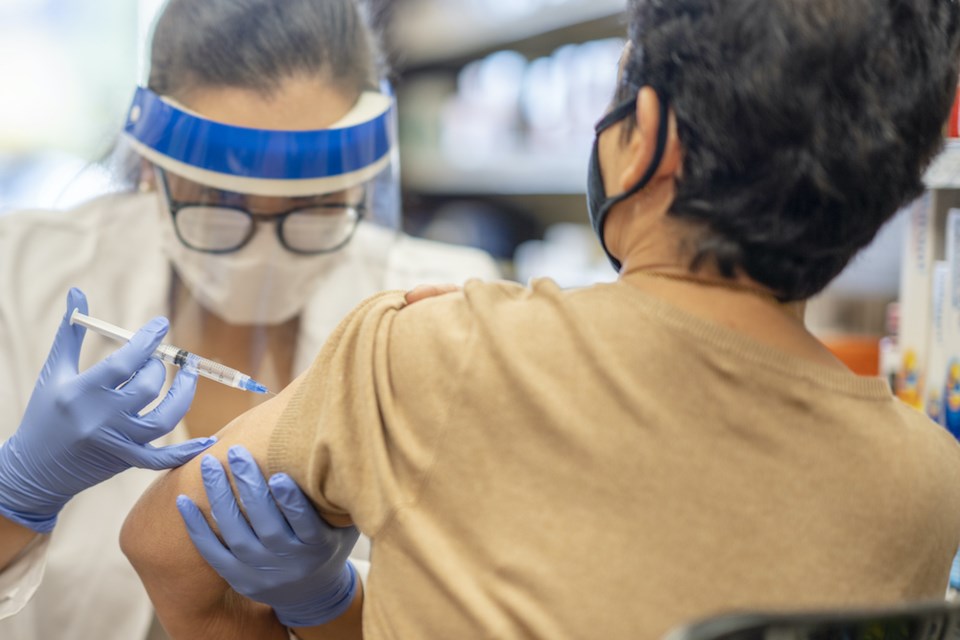A recent poll suggests that a . However, many people have raised concerns about contracting the virus between receiving their first and second doses.
Dr. Manish Sadarangani, associate professor at the University of British Columbia's faculty of medicine and director of the Vaccine Evaluation Center at BC Children’s Hospital, explains how long people have to receive their second dose of vaccine.
When the Pfizer and Moderna vaccines first arrived in Canada, health officials stated that each vaccine would require a second dose 21 and 28 days later, respectively. And the Canadian government continues to advise that these are the ideal times to receive a second dose.
Is it important to receive the second shot before the four-week interval elapses?
Sadarangani says that receiving a second dose after four weeks passes likely won't be detrimental--even if it's by a couple of weeks.
"Because of the pandemic’s widespread effects, we want to fully vaccinate Canadians as quickly as possible, while of course maximizing the effect of the first shot," he explains.
What happens if I get COVID-19 in between shots?
Due to the first shot’s efficacy, Sadarangani notes that it is "unlikely" you will contract the virus. That said, it takes roughly two weeks for protection to start after getting the first dose.
"If you are exposed to the virus in the first few weeks after receiving the first shot, there’s a possibility you could contract COVID-19," he explains.
However, if you do get COVID-19 in between shots, you should still get the second shot once you have recovered.
Why are some people harder to vaccinate?
Very few vaccines are 100 per cent effective as everyone’s immune system is different, explains Sadarangani. "Seniors are likely to respond less well to vaccines. And if you have health problems that may suppress your immune system, the vaccine may not work as well, which is why these people should remain in close consult with their family doctors or specialists."
Additionally, Sadarangani notes that the environment may play a role in the vaccine's effectiveness. While you have a good immune response to the vaccine, if you have high exposure to the virus, "there’s a possibility you may still become infected."
Will these vaccines prevent transmission of COVID-19?
Health officials don't know if the vaccines prevent transmission of COVID-19 because that was not part of the clinical trials. However, once enough people are vaccinated, Sadarangani says we will see a decline in transmission if they prevent transmission.
What’s the main difference between the Moderna and Pfizer-BioNTech vaccines?
Both the Pfizer-BioNTech vaccines were approximately 95 per cent effective in clinical trials and this level of protection should last for at least three months for both vaccines.
That said, scientists aren't sure how long immunity will last after this period. "Until we have more data, we won’t know how long immunity lasts after vaccination and whether or not additional booster shots will be required to keep us protected," adds Sadarangani.
But The main difference between the two vaccines is their stability—essentially, how long they can last outside of the freezer.
The Pfizer-BioNTech vaccine must be kept at minus 80 degrees Celsius and used relatively quickly when removed from the freezer. The Moderna vaccine is more stable and can withstand higher temperatures for longer. Subsequently, the Pfizer-BioNTech vaccine will be used more frequently in urban communities, while the Moderna vaccine will be used in more rural settings where more travel is involved.




